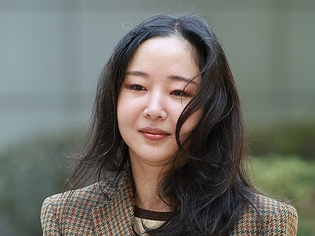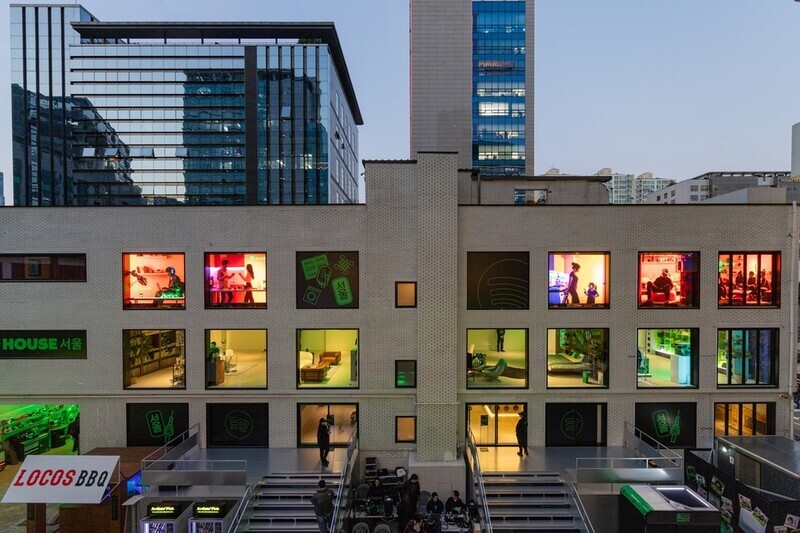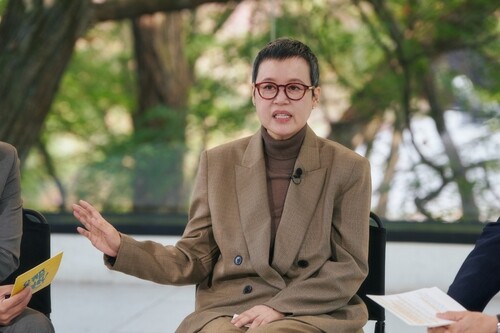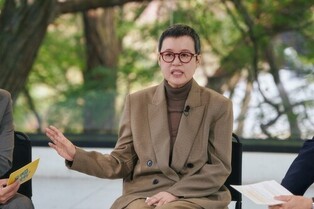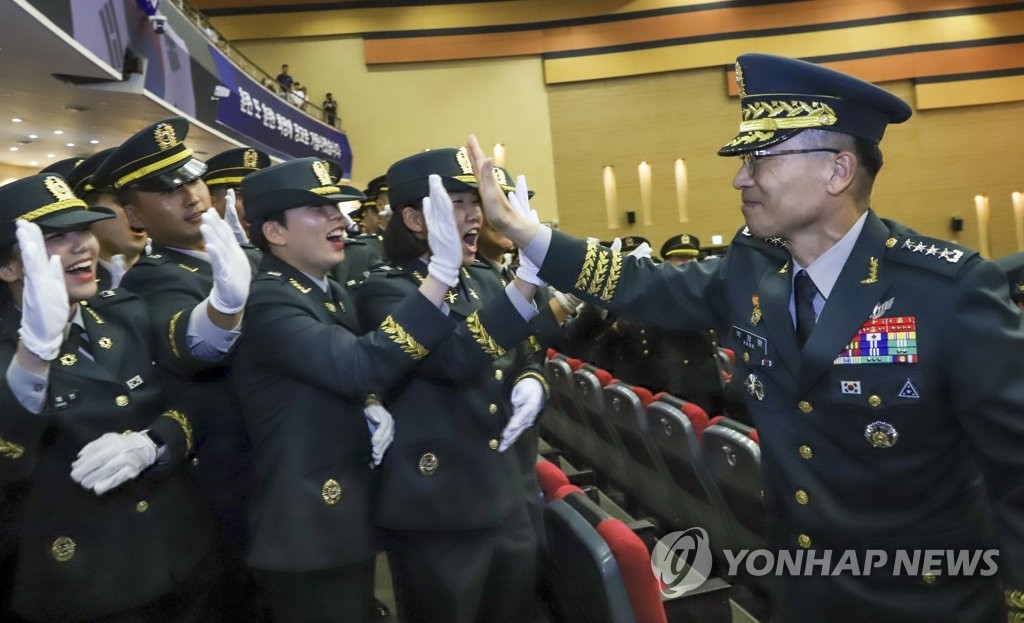 |
| ▲ Army Chief of Staff General Park Jeong-hwan attends a graduation ceremony at the Army Cadet Military School in Goesan, North Chungcheong Province, on June 23, 2023, in this file photo provided by the Army. (PHOTO NOT FOR SALE) (Yonhap) |
military-NK threat
S. Korea vows to bolster defense system against N. Korean missile threat
By Kim Eun-jung
GYERYONG, South Korea, Oct. 23 (Yonhap) -- The South Korean military will beef up its defense capabilities against North Korea's evolving nuclear and missile threat and asymmetric warfare tactics, the Army said Monday.
In a policy report for a parliamentary audit, the Army outlined its plan to enhance the Three-Axis System designed to track, detect and strike North Korea's missile and artillery systems amid renewed security concerns over Seoul's defense capabilities in the wake of the Israel-Hamas conflict.
"North Korea's enhanced nuclear and missile capabilities and Hamas' surprise attacks on Israel remind us that North Korea could provoke at any moment," Army Chief of Staff General Park Jeong-hwan said at an audit session held at the military headquarters in Gyeryong, about 140 kilometers south of Seoul.
"The Army is acutely aware of the severity of the security environment and is committed to fulfilling its mission of defense through leading national defense innovations," Park added.
South Korea's Three-Axis System includes the Kill Chain preemptive strike system, the Korea Air and Missile Defense System composed of multi-layered missile interceptors, as well as the Korea Massive Punishment and Retaliation campaign, which is aimed at eliminating the adversary's command-and-control by neutralizing its leadership and military facilities.
Pyongyang has staged a flurry of ballistic missile tests since last year, including launches of the Hwasong-18 solid-fuel intercontinental ballistic missile in April and July. It also made two failed attempts to put a military spy satellite into orbit earlier this year.
The Army said it will establish a "comprehensive, multi-tier defense system" to protect key facilities and the Seoul metropolitan region, home to about half of the country's 51.5 million population, against the North's long-range artillery and missile threat.
It vowed to push for an early deployment of interceptors and an advanced defense system capable of striking incoming cruise missiles at a low altitude, while additionally securing high-precision missiles and reinforcing the operational capabilities of special forces.
(END)
(C) Yonhap News Agency. All Rights Reserved






















